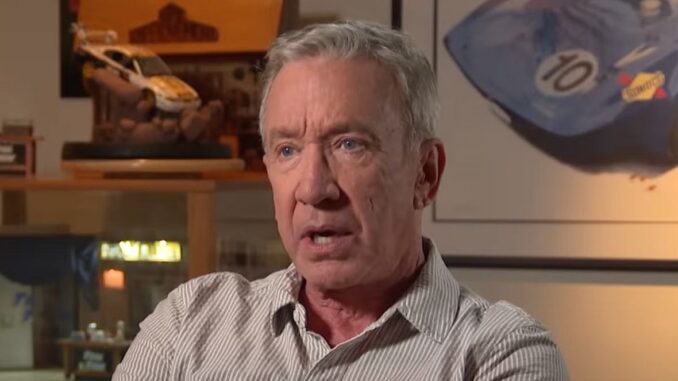
The Unseen Architect: Tim Allen's Prison Years and the Crucible of Self
The public persona of Tim Allen is one etched in the fabric of American comedy: the jovial, slightly bumbling patriarch, the witty everyman, the voice of Buzz Lightyear, the embodiment of a certain kind of wholesome, if sometimes gruff, masculinity. Yet, behind the well-honed punchlines and the warmth of a million living rooms lies a past far darker and more solitary – a chapter Tim Allen has, with increasing candor, opened up about: his two years spent in federal prison. These years, often glossed over or sensationalized, were not merely a period of incarceration but a crucible, a grinding struggle that, against all odds, forged the man America would later embrace.
To speak of Allen's "struggles" during his prison years is to speak of a multifaceted assault on the human spirit, commencing with the immediate, visceral shock of losing freedom. Imagine the vibrant, uncontrolled energy of a young man, abruptly confined to steel and concrete, the cacophony of normal life replaced by the monotonous drone of institutional living and the jarring clang of cell doors. This wasn't just a physical boundary; it was a psychological wall, stripping away identity piece by piece. The initial struggle, as Allen has alluded to, was likely the terrifying disorientation of becoming a number, a statistic, losing the very autonomy that defines personhood. The simple acts of deciding what to eat, when to sleep, or even where to look, were suddenly dictated by an unforgiving system. Fear, cold and sharp, would have been a constant companion – fear of the unknown, fear of violence, fear of the self slipping away.
Beyond the stark loss of freedom lay the insidious mental and emotional gauntlet. Prison, for many, becomes an echo chamber of regret, a barren landscape where past mistakes loom large and unescapable. For Allen, facing charges of drug trafficking, this period would have been rife with the gnawing anxiety of consequence – not just for himself, but for the life he had recklessly endangered and the future he had imperiled. He has spoken of the profound isolation, even amidst hundreds of other inmates. This isn't just physical separation from loved ones, but an internal solitude where one is forced to confront their choices, their character, and the very trajectory of their existence without the usual distractions or comforts. The monotony, the endless sameness of days, can be its own form of torture, turning the mind inward, sometimes constructively, often destructively. The struggle here was to find meaning, to maintain a shred of hope, to resist the seductive pull of despair in an environment designed to strip it away.
Yet, it was within this brutal landscape that the seeds of a profound, albeit painful, transformation were sown. Allen’s accounts hint at the development of a unique resilience, a street-smarts born not of the streets but of the cell block. To survive, one must become an astute observer, learning the unspoken rules, deciphering the subtle cues of human behavior under duress. This involuntary apprenticeship in human nature, the need to find humor and connection in the darkest corners, surely honed the observational skills that would later become the bedrock of his comedic genius. The ability to find the absurd, the ironic, the shared human experience even in a place devoid of joy, became a survival mechanism. This struggle wasn't just about enduring; it was about adapting, learning to listen more, to speak less, and to truly understand the dynamics of power and vulnerability.
Perhaps the greatest struggle, and simultaneously the greatest gift, of those years was the forced introspection. Stripped of his old life, his old habits, and his old associates, Tim Allen was left with nothing but himself. This radical self-assessment, though undoubtedly painful, became the crucible in which a new sense of purpose and responsibility began to solidify. The struggle was to accept accountability, to shed the justifications, and to make a conscious, internal decision to change. It was about facing the man in the mirror, not as the aspiring drug dealer, but as someone capable of a different future. This profound internal shift, born of hardship, illustrated the human capacity for redemption and the power of hitting rock bottom as a launchpad for a new trajectory.
Tim Allen's prison years were not merely a dark chapter to be closed but an unseen architect that profoundly shaped the man who would later bring laughter to millions. The struggles he faced – the loss of freedom, the mental and emotional isolation, the forced introspection, and the brutal lessons in human nature – became the crucible from which a different, more resilient self emerged. His willingness to open up about this period serves as a powerful illustration: that even in the bleakest of circumstances, the human spirit, through immense struggle, can find a path to reconstruction, turning a painful past into an unlikely foundation for a future far brighter than anyone could have predicted.